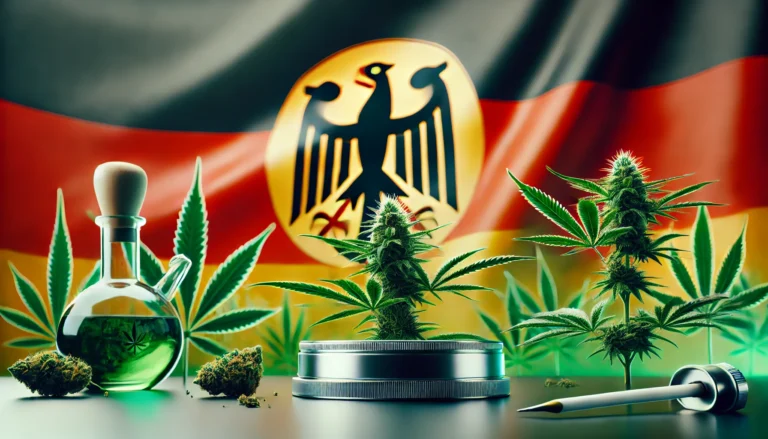Cannabis Legalization in Europe: What’s Changing in 2025?
In 2025, Europe is experiencing a significant transformation regarding cannabis legalization, with several countries redefining their regulations to meet the social, economic, and health demands of a rapidly growing market. This article provides an in-depth analysis of the most important developments, offering a comprehensive overview of legislative evolutions and their implications.
Germany: An Innovative Regulatory Model
Germany is emerging as a European leader in cannabis legalization, introducing a structured, multi-phase model. After allowing the domestic cultivation of cannabis and the establishment of Cannabis Social Clubs, the government is now moving forward with a pilot phase of regulated sales through specialized outlets.
Cities like Frankfurt and Hanover are launching pilot studies where residents can legally purchase up to 50 grams per month in authorized stores. This initiative aims to monitor the impact of legal sales on crime, public health, and consumer behavior. However, this openness has raised concerns from the German Medical Association, which fears increased consumption among young people and emphasizes the importance of prevention and educational policies.
Luxembourg: Pioneer in Domestic Cultivation
Luxembourg was among the first European countries to concretely address cannabis legalization, allowing domestic cultivation of up to four plants per household, with precise limitations to ensure discretion and public safety. The decision primarily aims to combat the illegal market, thus reducing risks for consumers associated with unregulated products.
In the near future, Luxembourg plans to implement further measures, including a regulated sales system that will enable legal, transparent, and controlled cannabis purchasing. This approach could become an important reference for other European countries considering similar policies.
France: High Consumption and Political Debate
Despite having some of Europe’s strictest cannabis laws, France holds the highest consumption rate on the continent. This paradox has intensified the political and social debate on possible legalization, driven by both economic and health reasons.
Statistics show that France invests around 570 million euros annually in suppressing cannabis use. Controlled legalization could generate significant tax revenues and create 40,000 to 80,000 jobs, stimulating sustainable economic growth. However, concerns regarding potential negative impacts on public health and safety remain central to the debate, slowing legislative progress.
Italy: The “Cannabis Light” Case
In Italy, while therapeutic cannabis use has been legal for years, recent debates have centered around so-called “cannabis light”, products derived from hemp with very low THC levels. In November 2024, the government proposed legislation to completely ban the sale of such products, sparking significant criticism from the industrial sector, which fears losing thousands of jobs and previous investments.
Currently, the European Commission is assessing whether these restrictions comply with EU law, leaving the future of “cannabis light” uncertain. The tension between restrictive national policies and an increasingly open European market could lead to significant short-term changes.
Switzerland: Moving Towards Comprehensive and Innovative Regulation
Switzerland could become the first European country to introduce comprehensive regulation of the recreational cannabis market by 2026. Currently, the country is experimenting with different sales methods in pharmacies and specialized stores, carefully monitoring impacts on society, public health, and the economy.
These pilot projects will provide crucial information to implement an effective regulatory model and serve as an example for other European countries interested in following this path. Switzerland could thus become a benchmark for the responsible management of cannabis.
Economic and Social Prospects of the Cannabis Market in Europe
The growing legalization of cannabis in Europe also has strong economic implications. Forecasts indicate rapid market expansion, with sales potentially reaching $140.5 million by 2025. This development could significantly stimulate the European economy, creating new job opportunities and generating substantial tax revenues for participating states.
At the same time, the legalization debate also involves careful consideration of social aspects. It is essential to develop balanced policies that protect public health, offer adequate educational programs, and ensure rigorous quality and safety controls for marketed products.
Pubblicità
🧠 Prova il Ribaltatore
Ribalta questa frase proibizionista con l'AI e scopri l'ironia dietro lo slogan.
Ribalta "Cannabis Legalization in Europ..."🔍 Frasi Correlate
Cerca altre frasi e contenuti su questo tema nel nostro archivio.
Cerca "Cannabis Legalization"Supporta Canapalandia
Se questo contenuto ti è stato utile, puoi sostenerci: ci aiuta a mantenere il progetto indipendente e aggiornato.






